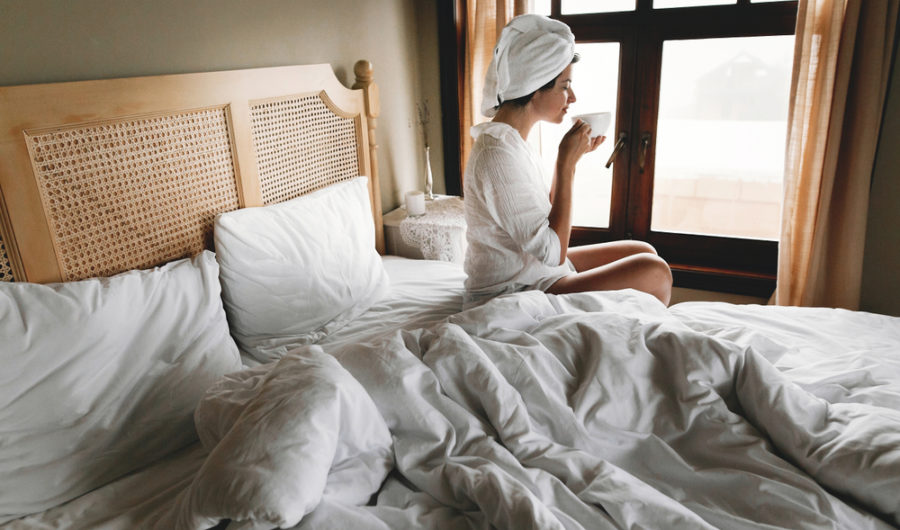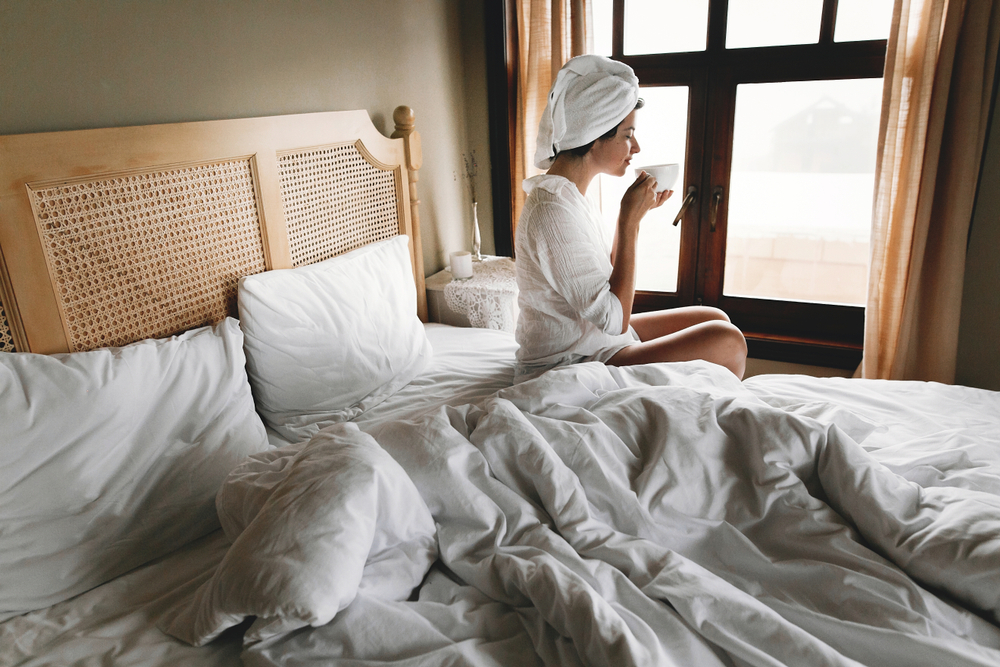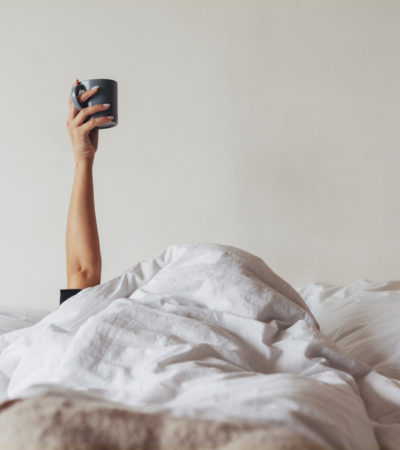Interrupted sleep can leave you feeling unproductive the next morning. There is nothing worse than spending hours trying to doze off and hearing your alarm clock ring after only an hour of sleep. Lack of sleep can negatively affect your mental and physical health too. Since the pandemic, self-care has become an integral part of our daily routines and whilst taking baths and scheduling that all-important yoga practice is pleasurable, we often overlook the ultimate self-care essential – a good night’s sleep. On average, adults need around 7-8 hours of good quality sleep. This time will give you the energy to power through the day ahead.
There are many factors that you can control which contribute to a consistent and restful sleep. From the mattress you sleep on to your eating habits, Rob Davey, sleep expert at Snoozel Green has shared his 7 genius ways to transform your sleep.
1. Reassess your mattress
Sleeping on an unsupportive mattress that is lumpy in texture can cause discomfort and result in a bad night’s sleep. Over the years, your mattress will start to sag which leads to inadequate support during the night as well as bad sleep hygiene so opting for a good quality organic mattress will make a huge difference. A natural, eco mattress like this one is a combination of natural latex paired with organic cotton and wool fibres, which creates a much more breathable environment to help stop the growth of bacteria, moulds, and dust mites. It’s advised to change your mattress every 6-8 years but if you notice sagging or discolouration, it might be time to invest in a new one. And hey, why not make it more natural?
2. Breathing exercises
The more stimulated your brain becomes during the day, the harder it can be to unwind at night. The 4-7-8 method is a popular breathing exercise that can help you wind down and fall asleep quicker. Close your mouth and inhale through your nose for a count of 4. Hold your breath for 7 counts and exhale through your mouth for 8 counts. Repeat as much you need to. Breathing from your belly rather than chest can help to activate the relaxation response and lower your heart rate, blood pressure and stress levels.

3. Limit your bedroom use
If possible, your bedroom should only be used for sleeping. Using your room to watch TV or eat, will train your brain to view the room as social. This can lead to your brain not shutting off when you need to sleep. Remove as much clutter from your bedroom and keep the area free from excess electronics and distractions. Keeping a clear space will build a strong association between sleep and the bedroom.
4. Watch your eating habits
Your eating habits in the daytime play a vital role in how well you sleep at night. A heart-healthy diet rich in fruit, vegetables and healthy fats can contribute to falling asleep faster. Avoid eating heavy meals 2 hours before bed and, if you’re really struggling to fall asleep, try making your dinnertime earlier in the evening to allow food to digest. Sugary foods and refined carbs such as white rice can impact your alertness during the night, so try and limit the intake.
5. Make gradual adjustments
It’s impossible to make big changes to your sleep pattern overnight. The most realistic way is to make small changes. For example, if you are trying to go to bed at 10 pm rather than 1 am, go to bed at 12.45 am for the first few nights. Then change this to 12.30 am for the next few days. Adjusting your sleep schedule gradually will conclude in an easier transition. If you try and force yourself to do too much too soon, it will create more stress and tension related to sleep.
6. Exercise during the day
People who exercise regularly have noted that they sleep better at night. Consistent exercise improves symptoms of insomnia and sleep apnea. It’s important to burn some energy! The more strenuous your exercise, the better your sleep will be but build upon your fitness levels gradually if you’re new to exercise. Try to finish workouts at least 3 hours before bedtime as your body temperature and metabolism needs time to cool down. If you want to go a step further, exercising outdoors will also help regulate your circadian rhythm due to exposure to natural light during the daytime which will also help your body recognise the difference between day and night.
7. Allergy check
You spend a lot of your time sleeping, so it’s important to invest in a quality mattress and bedding. Sleep problems might be an indicator that you are allergic to your bed. If you suffer from asthma or other pulmonary function allergies, you need to be aware of what your mattress is made of. Many mattresses use synthetic materials and toxic chemicals in the manufacturing process. This can lead to toxic off-gassing that persists in our environment and has been linked to physical and mental health problems. Organic mattresses and bedding using 100% natural materials, there are no mysterious chemicals that can be breathed into your skin so you can sleep with ease.
READ MORE: Walnut and Banana Breakfast Traybake














